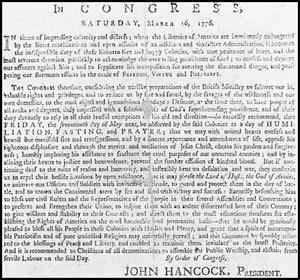 December 9, 2015 - It is distressing that at least two of our national leaders publicly declared recently that “anti-Muslim” rhetoric is in some way equivalent to “Muslim-extremists” terrorism. However, such political posturing about the recent San Bernardino murders still registers a bit less on my personal “distress meter” than the related headlines of the New York Daily News on December 3: “God Isn’t Fixing This.”
December 9, 2015 - It is distressing that at least two of our national leaders publicly declared recently that “anti-Muslim” rhetoric is in some way equivalent to “Muslim-extremists” terrorism. However, such political posturing about the recent San Bernardino murders still registers a bit less on my personal “distress meter” than the related headlines of the New York Daily News on December 3: “God Isn’t Fixing This.”
There are countless times in history, even when we limit ourselves only to American history, that God has “fixed” even worse situations. The outcomes of the Revolutionary, Civil, WWI, and WWII Wars are just a few of many terrible situations that God has chosen to “fix.” The operative word is “chosen,” chosen to “fix” in behalf of America because, in my opinion, America functioned as a Christian nation from its inception through at least WWII.
We don’t know when His choice will stop being in America’s behalf, but early American history is full of examples of positive Christian-based and God-guided decisions in the political arena. It might be enlightening to site one of the first of such examples. It is well documented that May 17, 1776 (forty-five days before America’s independence was declared) was declared a day of “humiliation, fasting, and prayer” by the Continental Congress throughout the colonies.
“In times of impending calamity and distress, when the liberties of America are imminently endangered by open assaults of an insidious and vindictive administration (the British government), it becomes the duty of these hitherto free and happy colonies, with true penitence of heart, and the most reverent devotion, to acknowledge the over ruling providence of God; to confess and deplore our offences against him; and to supplicate his interposition for averting the threatened danger, and prospering our strenuous efforts in the cause of freedom, virtue, and posterity.
“The (Continental) Congress, therefore, considering the warlike preparations of the British Ministry to subvert our invaluable rights and privileges, and to reduce us by fire and sword, by the savages of the wilderness, and our own domestics, to the most abject and ignominious bondage; desirous, at the same time, to have people of all ranks and degrees duly impressed with a solemn sense of God's superintending providence, and of their duty, devoutly to rely, in all their lawful enterprises, on His aid and direction, do earnestly recommend, that Friday, the Seventeenth day of May next (1776), be observed by the said colonies as a day of humiliation, urging citizens to confess...sins and transgressions, and by sincere repentance … through the merits and mediation of Jesus Christ, obtain his pardon and forgiveness." (italics added by editor)
--from Journals of the Continental Congress (March 16, 1976); signed by John Hancock, President of the Congress
Unfortunately for Americans, such faith in God’s power seems to have become weaker in recent times. Otherwise, the headline in the New York Daily News on December 3 might have stated, “God May Choose to Fix This” and then asked that the next day (or later) be declared a day of prayer. It made all the difference for John Hancock and his governmental gathering; such requested mercy might still be available to modern-day America.








